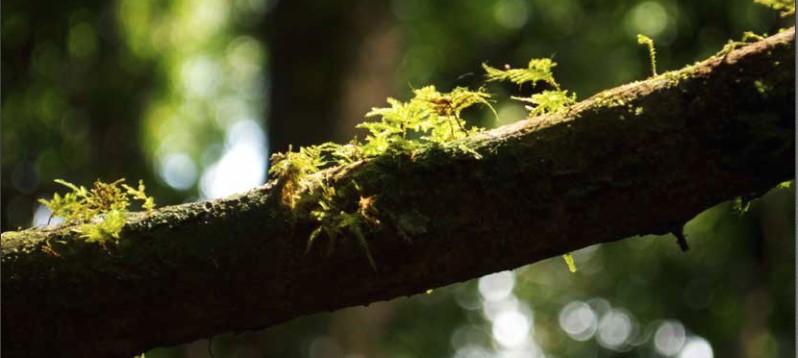Commitments from Central African countries to achieve ambitious climate and forests targets are met by increased funding by the EU, France, Germany, Norway, South Korea and the UK with CAFI. But much more is needed, donors warn.
New York, 23 September 2019 – Central African forests are a vital carbon sink for the globe, and an essential resource for communities and national governments; their continued existence and protection are key to our planet’s future. At the UN Secretary-General’s Climate Action Summit, donors to the Central African Forest Initiative (CAFI) today joined forces to reiterate support and financial contributions.
Early warning signs, such as the unprecedented level and pace of forest loss observed in the past three years in some parts of the region, point to extreme risks. The world’s second largest tropical forest could undergo drastic change. Urgent, scaled up action - from governments, development finance institutions, investors and companies - is needed to tackle multiple threats to forests.
This represents a “remarkable opportunity”, according to a recent report. Transforming food and land use systems can help tackle climate change, biodiversity loss, create new business opportunities and support healthy and inclusive rural economies. Short-term costs (such as potential immediate benefits forgone by a country choosing not to convert forests into more immediately profitable land uses, and the financial costs of conserving forests, including development and enforcement of land use laws –) are dwarfed by the consequences arising from the irreversible loss of these tropical forests and the benefits arriving in the longer and medium terms.
"Beyond rewarding reductions in forest loss, we need to provide Central African countries, especially those with low historic deforestation rates, with more incentives to preserve standing forests, and value forest conservation and good forest stewardship”, said Ola Elvestuen, Norway’s Minister of Climate and Environment.
“CAFI’s latest agreements are ambitious: 150 million US dollars of results-based payments for emission reductions and removals with Gabon – who aims to maintain 98% of its extensive forest cover - and USD 65 million with Republic of Congo – a country committing to protect its high carbon stocks and biodiversity-rich forests and refrain from draining precious peatlands,“ he added.
“These forests are important to the economies of the countries of the region. Their protection is vital for the countries who harbour them, their neighbours of the sub-region and beyond, and the world as a whole,” underlined Mr Chongho Park, Deputy Director of South Korea’s Forest Service.
Central African countries have set ambitious and legitimate targets to reach emerging economy status in the next years and seek to diversify their economies. They are facing highly complex choices and must bridge their national economic development with global and national environmental concerns such as climate change and biodiversity loss. Efforts to enhance nationally determined contributions (NDCs) and to raise ambitions in this respect are critical.
“We welcome the concrete commitments Central African countries have made–and continue to make – to achieve those ambitious targets, as well as the political mobilization of the region’s leaders to contribute to the UN Climate Action Summit,” declared Dr Maria Flachsbarth, State Secretary to Germany’s Federal Minister for Economic Cooperation and Development.
Concrete examples of commitments made and actions taken so far at the national level include:
- the stabilization of forest cover
- the non-conversion of their most precious forests with high carbon stock and high conservation values, highlighted in Letters of intent with CAFI
- the certification of forest concessions
- the restriction of agro-industrial plantations larger than 5 hectares to savanna areas
- the protection of peatlands from draining and drying out
CAFI donor commitments resonate with the Manifesto of the Nature-Based Solutions Coalition – specifically on increasing the mainstreaming of such solutions in climate policy and instruments, and on enhancing regional cooperation.
“CAFI is ready to support the ambitious and committed forest countries that deliver results to achieve the objectives of the Paris Agreement, and will take stock at the COP-25 of the UNFCCC in Chile“, concluded Cyrille Pierre, Deputy Director General at the Globalization, Culture, Education and International Development Directorate of France’s Ministry of Europe and Foreign Affairs.
In further alignment with the Manifesto call for shifts in finance and governance and increased ambitions from all parties, donors stepped up with new pledges, channelled with and through CAFI: the Letter of Intent with the Republic of Congo ( US$ 65 million from France, the EU, Norway, Germany and the UK); the results-based agreement with Gabon (US$ 150 million from Norway) ; and new pledges from Germany and South Korea of of US$ 33 million and US$ 2 million, respectively.

